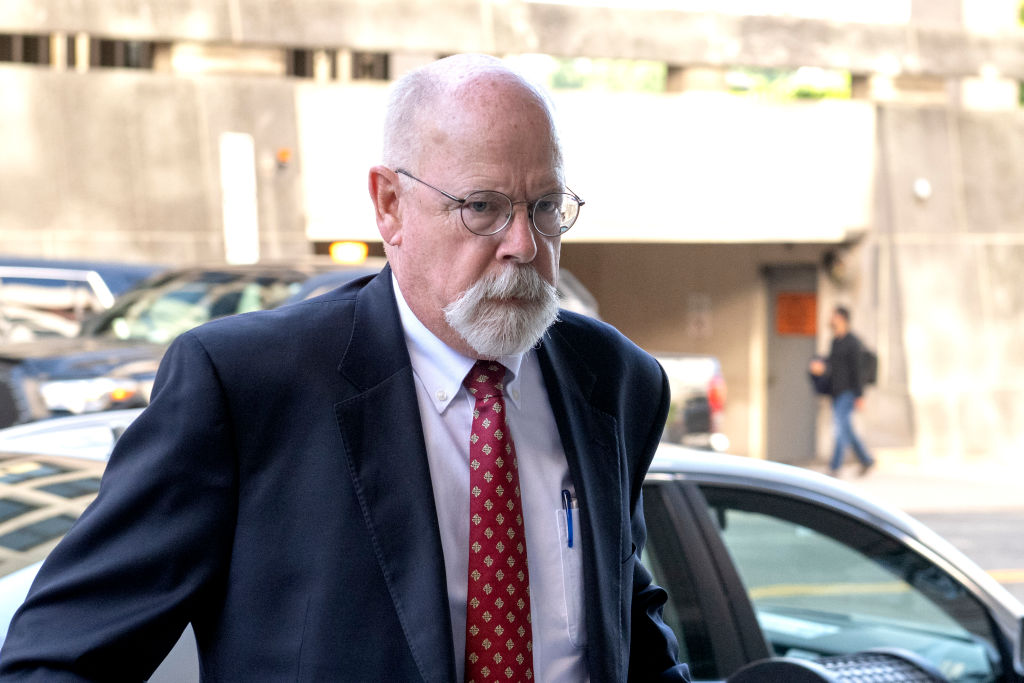The Justice Department and FBI faced criticism over their handling of the “Russian collusion” investigation involving Donald Trump, according to a highly anticipated report released by special counsel John Durham on Monday. Durham’s inquiry focused on the origins of the FBI’s Crossfire Hurricane investigation, which aimed to determine if Trump’s 2016 campaign or he himself conspired with Russia to influence the election.
Special counsel Robert Mueller, who took over the investigation after Trump’s election, had previously concluded that there was no evidence of a conspiracy. Durham, appointed by former Attorney General William Barr, was appointed to look into the origins of the investigation and presented several important conclusions in his 306-page public report.
Following the release of the report, Republican chairman Jim Jordan called for Durham to testify before Congress.
We’ve reached out to the Justice Department to have Special Counsel John Durham testify next week.
— Rep. Jim Jordan (@Jim_Jordan) May 15, 2023
Both the FBI and the Justice Department did not object to Durham’s findings. The FBI acknowledged the need for corrective measures and emphasized the importance of maintaining their performance with “rigor, objectivity, and professionalism.” Attorney General Merrick Garland informed Congress about the report after receiving it on Friday.
The Durham report revealed that the FBI initiated its investigation into Trump without any supporting evidence. It stated that neither law enforcement nor the intelligence community had actual evidence of collusion at the beginning of the Crossfire Hurricane inquiry. The report criticized the FBI for failing to uphold their mission and highlighted their shortcomings, which caused severe reputational damage. It also compared the investigation into Trump with the cautious approach taken towards Hillary Clinton, suggesting disparities in their treatment.
Durham’s report delved into the role of FBI agents who displayed hostility towards Trump or had partisan biases that influenced their actions. Deputy Assistant Director Peter Strzok, driven by animosity towards Trump, immediately launched the Crossfire Hurricane investigation. The report highlighted the FBI’s failure to conduct a thorough review of intelligence databases and to utilize standard analytical techniques. As a result of Inspector General Michael Horowitz’s inquiry, both Andrew McCabe and Strzok were fired from the FBI.
The report emphasized that political opposition to Trump during the 2016 election played a part in initiating and sustaining the probe. It criticized the reliance on investigative leads from Trump’s political opponents and the failure of the Justice Department to adequately review or challenge these sources. While the report acknowledged that there were flaws and biases in the investigation, it did not recommend significant changes to current FBI guidelines and policies.
Three individuals were indicted by Durham’s grand jury, but only one, Kevin Clinesmith, an FBI attorney, was found guilty of falsifying an email related to a warrant request. The report characterized Clinesmith’s actions as a criminal offense. The report also highlighted instances where FBI personnel displayed a cavalier attitude towards accuracy and completeness, as well as their disregard for crucial requirements and exonerating evidence.













